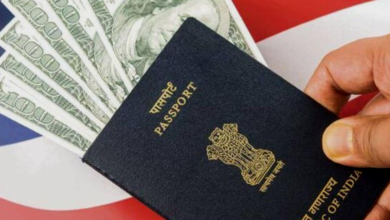Know Your Civil Rights in Illinois A Guide to Discrimination and Police Misconduct Cases
Learn about civil rights in Illinois including discrimination protections and police misconduct laws Know your rights and legal recourse.

Understanding your civil rights in Illinois is essential to protecting yourself against discrimination and police misconduct. Both state and federal laws provide robust protections to ensure fair treatment in employment, housing, public accommodations, and interactions with law enforcement. However, many individuals remain unaware of their legal rights or how to enforce them when violated. This guide offers a detailed exploration of Illinois civil rights laws, common forms of discrimination, legal remedies for police misconduct, and actionable steps to seek justice.
Whether you have faced workplace bias, housing discrimination, or unlawful police actions, knowing your rights is the first step toward holding violators accountable. We will examine key legal protections, how to recognize violations, and the proper channels for filing complaints or lawsuits. By the end of this guide, you will be better equipped to navigate the legal system and advocate for your rights effectively.
Know Your Civil Rights in Illinois
Comprehensive Anti-Discrimination Protections in Illinois
Illinois enforces robust civil rights safeguards through the Illinois Human Rights Act (IHRA), which goes beyond federal laws by prohibiting discrimination in employment, housing, public accommodations, and financial transactions. Protected categories include race, religion, sex, national origin, age, disability, sexual orientation, gender identity, marital status, and military status. State agencies like the Illinois Department of Human Rights (IDHR) investigate complaints, while victims can also seek remedies through civil lawsuits.
Federal Civil Rights Laws and Enforcement Mechanisms
Federal laws such as the Civil Rights Act of 1964, Fair Housing Act, and Americans with Disabilities Act (ADA) provide baseline protections against discrimination. Constitutional rights (e.g., Fourth Amendment protections against unlawful searches, Eighth Amendment bans on excessive force) also apply in police misconduct cases. Victims can file complaints with federal agencies like the EEOC (employment discrimination) or HUD (housing bias) or pursue litigation in federal court for damages and policy reforms. Illinois’ dual-layer enforcement ensures stronger accountability compared to many other states.
Recognizing Discrimination in Everyday Life
Workplace Discrimination Forms and Legal Recourse
Discrimination in employment can be overt (e.g., racial slurs, denial of promotions) or subtle (e.g., unequal pay, exclusion from key projects). Key violations include Bias in hiring, promotions, or pay (e.g., gender wage gaps, racial disparities). Harassment or hostile work environments (e.g., sexual harassment, religious intolerance). Retaliation against whistleblowers who report discrimination. Legal protections Employees can file complaints with the Illinois Department of Human Rights (IDHR) or the federal Equal Employment Opportunity Commission (EEOC). Remedies may include back pay, reinstatement, or policy changes.
Housing and Public Accommodations Prohibited Discrimination
Housing Discrimination Illegal acts include refusing rentals, imposing higher rents, or “steering” minorities into certain neighborhoods. Redlining (denying loans/services in minority areas) violates the Fair Housing Act. Victims should document evidence and report to IDHR or HUD for investigations. Public Accommodations Businesses (restaurants, hotels, stores) cannot deny service based on race, religion, disability, etc. The ADA requires accessibility (e.g., ramps, assistive tech) for people with disabilities. Complaints can be filed with IDHR or the U.S. Department of Justice (DOJ).
Police Misconduct Know Your Rights During Encounters
Unlawful Stops and Searches
The Fourth Amendment protects against unreasonable searches and seizures. Police must have probable cause or a warrant to search your property or detain you. If an officer stops you without justification, you have the right to ask, “Am I free to go?” If the answer is no, they must provide a valid reason.
Excessive Force and Brutality
While police may use force, when necessary, unjustified violence such as beating a compliant suspect violates the Eighth Amendment. High-profile cases have highlighted the need for accountability, and victims can file complaints or lawsuits to seek justice.
Racial Profiling
Targeting individuals based on race rather than evidence is illegal. Illinois law requires police departments to collect data on traffic stops to monitor and address biased policing. If you experience misconduct, document the officer’s name, badge number, and witness details. Filing a complaint with the Civilian Office of Police Accountability (COPA) in Chicago or the Illinois State Police is a crucial step.
Taking Legal Action Steps to Enforce Your Rights
Document & Preserve Evidence
To build a strong civil rights case, document every discriminatory incident thoroughly. Save all relevant emails, texts, or written communications that demonstrate bias, and collect signed witness statements from coworkers, neighbors, or others who observed the misconduct. If applicable, take photos or videos of injuries (e.g., from police brutality) or inaccessible facilities (e.g., ADA violations). Act quickly critical evidence like security footage or electronic records can be lost or deleted over time.
File an Administrative Complaint
To protect your civil rights, timely reporting is critical. If you experience discrimination in Illinois, you must file a complaint with the appropriate agency within strict deadlines For violations under the Illinois Human Rights Act (IHRA), submit to the Illinois Department of Human Rights (IDHR) within 300 days. For workplace discrimination, file with the Equal Employment Opportunity Commission (EEOC) within 180 days, or 300 days if cross-filed with IDHR. For housing discrimination, report to the U.S. Department of Housing and Urban Development (HUD) within one year.
Pursue Legal Action with Expert Help
If you believe your civil rights have been violated, consulting an experienced civil rights attorney is crucial to assess your case’s merits, estimate potential damages (such as lost wages or emotional distress), and guide you through complex legal proceedings against employers, landlords, or law enforcement. For those who cannot afford private counsel, nonprofit organizations like the ACLU of Illinois or the Chicago Lawyers’ Committee offer free or low-cost legal assistance. If mediation or administrative remedies fail, filing a lawsuit may be necessary to seek compensation, demand policy reforms, or pursue punitive damages against violators.
Read More: Discrimination Laws in Florida: Know Your Rights in the Workplace
Conclusion
Understanding your civil rights in Illinois is the foundation for protecting yourself against injustice and holding violators accountable. This guide has outlined the critical protections against discrimination in employment, housing, and public spaces, as well as your rights during police encounters. Whether you’ve experienced workplace bias, housing discrimination, or police misconduct, knowing these rights empowers you to take action and demand fair treatment under the law.
As we’ve explored, Illinois offers strong legal safeguards, but they only matter if individuals exercise them. If your rights have been violated, document everything, file complaints with the appropriate agencies, and consider consulting a civil rights attorney. Remember, understanding your civil rights in Illinois isn’t just about personal protection – it’s about contributing to a more just and equitable society for all. By staying informed and taking action when necessary, you help ensure these fundamental rights remain meaningful for every Illinois resident.
FAQs
What qualifies as employment discrimination in Illinois?
Employment discrimination occurs when an employer makes decisions based on race, gender, religion, disability, or other protected traits rather than merit.
How long do I have to file a discrimination complaint?
In Illinois, complaints must typically be filed with the IDHR within 300 days or with the EEOC within 180 days of the incident.
Can I sue the police for misconduct?
Yes, victims can file a federal lawsuit under Section 1983 for constitutional violations, including excessive force or false arrest.
What should I do if I’m illegally searched by police?
Stay calm, do not resist, but clearly state you do not consent. Note the officer’s details and contact a lawyer to challenge the search later.
Are there free legal resources for civil rights cases?
Yes, organizations like the ACLU and local legal aid clinics provide free or low-cost assistance for discrimination and police misconduct cases.











